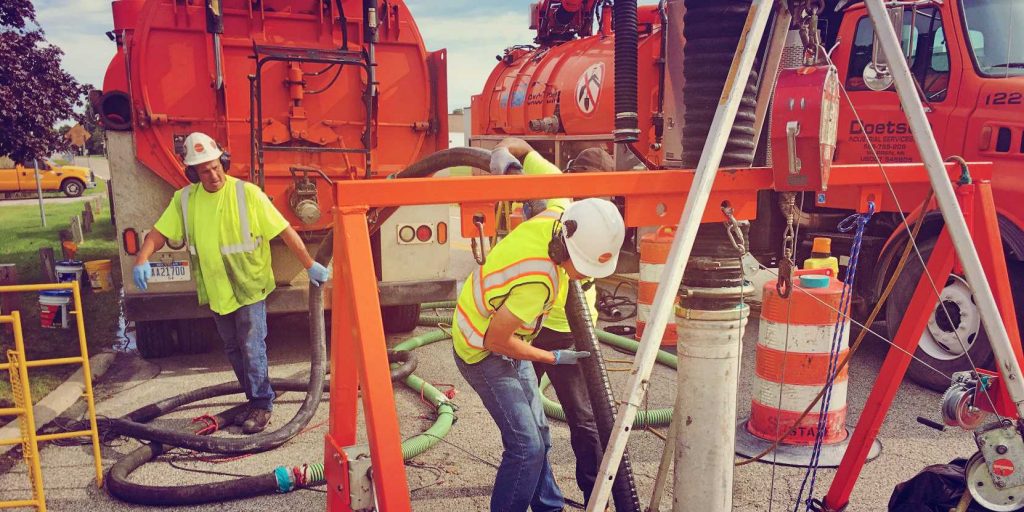Fatberg Removed From Michigan Sewer After Improper Grease Trap Cleaning
With the stink of congealed grease, oil and fat serving as a backdrop, Macomb County Public Works officials remind everyone of the consequences of pouring everything down the drain.
One day after revealing the massive fatberg found in Lakeshore Interceptor drain, Macomb County Public Works Commissioner hoped to use the discovery as a teaching moment for both residents and business owners.
"It's comprised of what people inadvertently, or negligently, are putting down their sewers. That is greases, oils, all kinds of various things," Macomb County Public Works Commissioner Candice Miller said. "You'll find this is a restaurant situation when they're not inspecting and performing grease trap cleaning on a regular basis. You can’t just pour the grease down the sewer. It shouldn't go down the sewer."
The MCPW displayed chunks of the fatberg at the Clintondale Pump Station in Clinton Township, part of a 100-foot long, 11-foot wide, six-foot tall blob that was found about a year ago during a routine inspection. Public Works Operations and Flow Manager Vince Astorino said cameras down in the sewer got stuck in the fatberg during the inspection.
Food waste is a main ingredient of the fatberg, but not the only cause of the gelatinous blockage.
The blob was about 100 feet long, six feet tall, and weighed about 19 tons when county officials decided it was time to remove it. If they had let it grow, the “fatberg” would have blocked the entire pipe and spewed sewage out into the environment.
The county called Doetsch Environmental Services to remove the gooey mass. At first, the company tried suction, but the fatberg was too dense. Next, the removal crew tried to cut up the fatberg with high-pressure water—but it was too tough.
Ultimately, Doetsch workers had to crawl into the pipe with handsaws and hack the stinking mass into portable pieces, some of which were sucked out, and some of which had to be carried out.
Joe Schotthoefer of Doetsch Environmental said it was by far the largest fatberg he'd ever seen in 25 years of working in the business.
"There was so much sanitary trash intermingled with the grease that our normal methods were largely ineffective," he said. "Everyone needs to be environmental stewards. This is all solid waste that should be on the curb, not down your drain."
The county was charged about $100,000 to have the fatberg removed.
The blockage occurred at the Clintondale Pump Station, located south of Shook Road and west of Interstate 94 in Clinton Township because it is "the end of the line," which serves Clinton, Harrison, Chesterfield and Lenox townships, plus the village of New Haven. The 19-ton fatberg, which has now been mostly cleared, was sent to a landfill.
Miller announced the MCPW has partnered with the Macomb County Health Department to begin a public education campaign to prevent other fatbergs from developing in the future. Bill Ridella, the director of the health department, said educational material will be distributed to the more than 2,500 restaurants, food services and schools in the county during routine inspections, with local managers then educating staff how to properly dispose of grease and oil. Ridella called them "common sense principals."
“We want to use this as a teachable moment if we can to get folks to change their behavior towards what they’re putting down in the sewer,” Miller told a news conference. “There’s an enormous cost to removing fatbergs and we’re all paying for it. We don’t want to continue to do it.”
County officials said the public can also help by eliminating or reducing all garbage disposal use.
If you want to eliminate food solids from clogging the grease trap in your commercial kitchen, consider installing The Drain Strainer. Invented by a former restaurant owner, our food solids separator is an effective and affordable commercial garbage disposal alternative.


Pingback: How Your Cafeteria Grease Trap Design Impacts Safety and Functionality